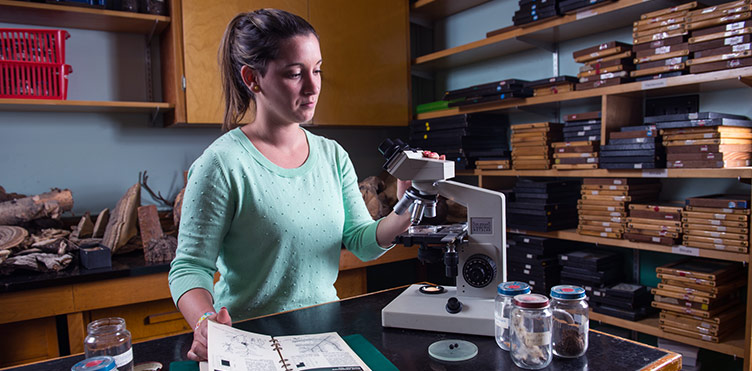Forestry and Environmental Management

- Degrees Offered: MScF, MF, MScFE, MFE, MScEM, MEM, PhD
- Application Deadline: Open; Master of Environmental Management (MEM) = Feb. 15 (Fall start only)
- Study Options: Coursework, Thesis, Report, Project-Based
- Duration: One - two (Masters), 16 months (MEM), four years (PhD)
- Entry Terms: MEM & MF-Registered Professional Forester programs have a Fall-only intake, while all other graduate programs accept students in any term.
For over a century, UNB has been at the forefront of forestry education, empowering students to manage and protect our planet's natural resources. Our graduate programs in Forestry and Environmental Management combine tradition with innovation, preparing the next generation of environmental leaders.
Ranked among the top programs in North America, our faculty fosters a collaborative learning environment where students tackle real-world environmental challenges from both biophysical and socioeconomic perspectives. Our Graduates go on to become respected professionals- natural resource managers, conservationists, project coordinators, researchers, and more.
With over 100 graduate students engaged in internships, research, and management projects, our community is vibrant and diverse. Alumni have launched successful careers in conservation biology, First Nations consultation, geospatial analysis, and environmental consulting. Most find opportunities with government agencies, NGOs, and consulting firms- often in roles that lead to leadership and management positions.
Faculty and research areas
- Paul Arp - Soils and Forest Ecosystems
- Tom Beckley - Environment and Natural Resources Social Science
- Charles Bourque - Forest Meteorology
- Graham Forbes - Wildlife Ecology, Park Management, Conservation Biology
- Jasen Golding - Forest Operations Planning
- Meng Gong - Wood Technology and Wood Mechanics
- Michelle Gray - Aquatic Monitoring, Watershed Assessment, Ecotoxicology
- John Kershaw - Forest Mensuration, Forest Biometrics
- Tommi Linnansaari - Biotelemetry, Environmental Flows, Stream and River Ecology
- Rafaella Mayrinck - Silviculture, Forest Management, Forest Ecology
- Fan-Rui Meng - Forest Science, Hydrology and Watershed Management
- Joe Nocera - Endangered Species, Forest Wildlife Ecology, Ornithology
- Jae Oglivie - Wet Areas Mapping, Geographic Information Systems (GIS)
- Anthony Taylor - Climate Change Impacts, Forest Modeling and Analytics
- Christopher Wong - Remote Sensing, Plant Ecophysiology, Ecosystem Ecology
Associated research centres
Application requirements
- With the exception of the MEM program, applicants must contact faculty prior to applying to secure research supervision.
- Applicants should hold an undergraduate in science, forestry, environmental studies, social ecology or the equivalent from a recognized university with a minimum 3.0 (B) average.
- Applicants to the PhD program should have a masters degree from a recognized university.
- Applicants must submit a complete application, including three references, a resume, and a statement of interest.
- International applicants whose first language is not English must submit language scores that meet or exceed international English language testing system (IELTS) band 7.
- Applicants who attended post-secondary institutions outside Canada or the United States must provide a WES ICAP evaluation listing all prior post-secondary education they have obtained. The review committee also reserves the right to ask for a WES ICAP evaluation in other cases where this evaluation is needed to accurately assess an applicant's credentials. The WES ICAP evaluation ensures certified expert translation of academic standing and degree credentials and expedites the subsequent review and decision process.
Funding
Funding support is available for students enrolled in the MScEM, MScF, MScFE, and PhD programs. Students in the MF and MFE programs receive a one-year Graduate Research Award. The MEM is self-funded.
Students in funded master's programs are guaranteed a minimum of $25,000 over two years, while PhD students receive $30,000 per year for three years. This financial support is provided through a combination of Graduate Research Awards and Supervisor Funding.
Contact us
For more information on our program, contact program administrators.
Main Office: I.U.C Forestry, Rm. 101
Phone: 1-506 458 7520
